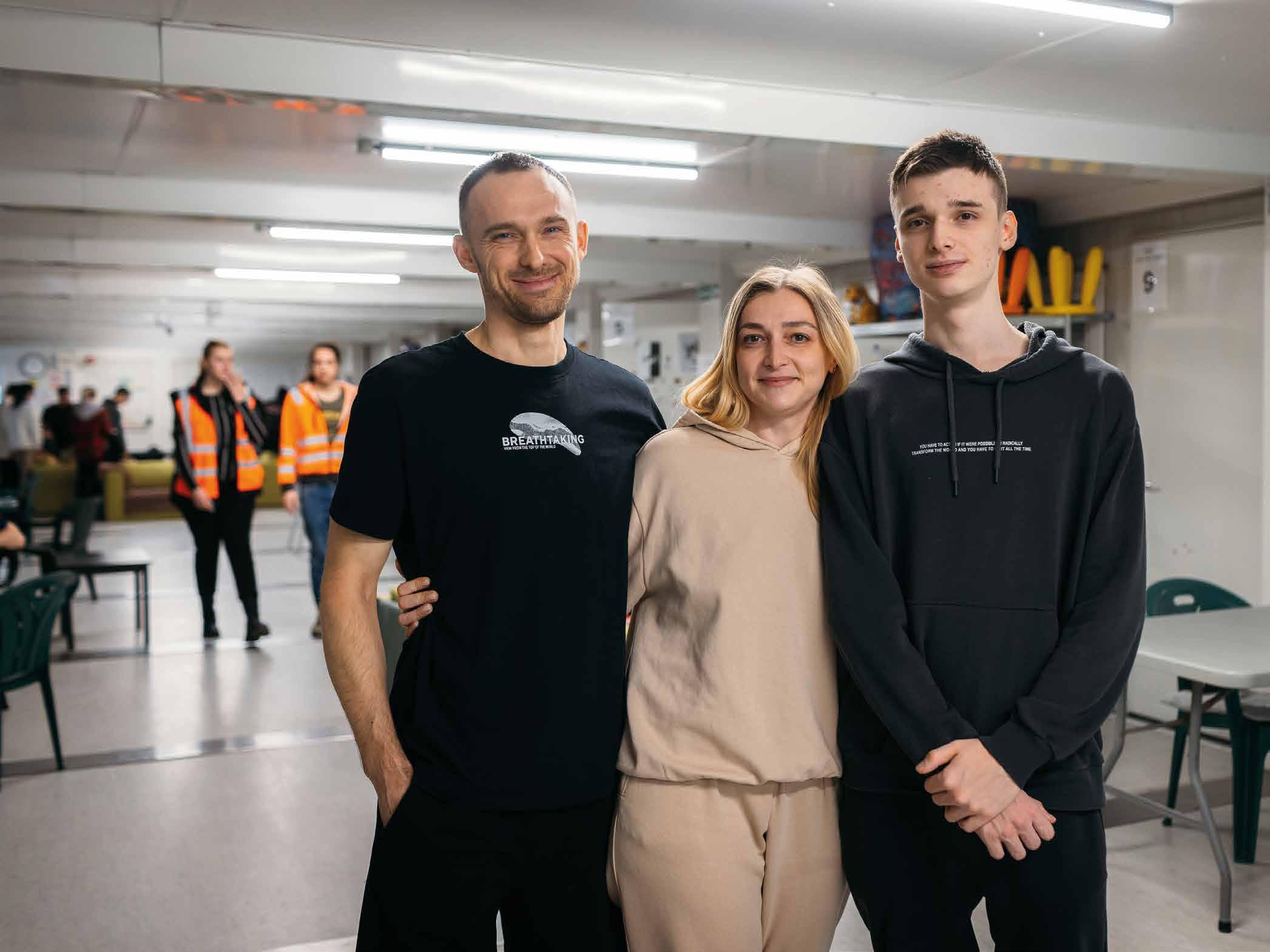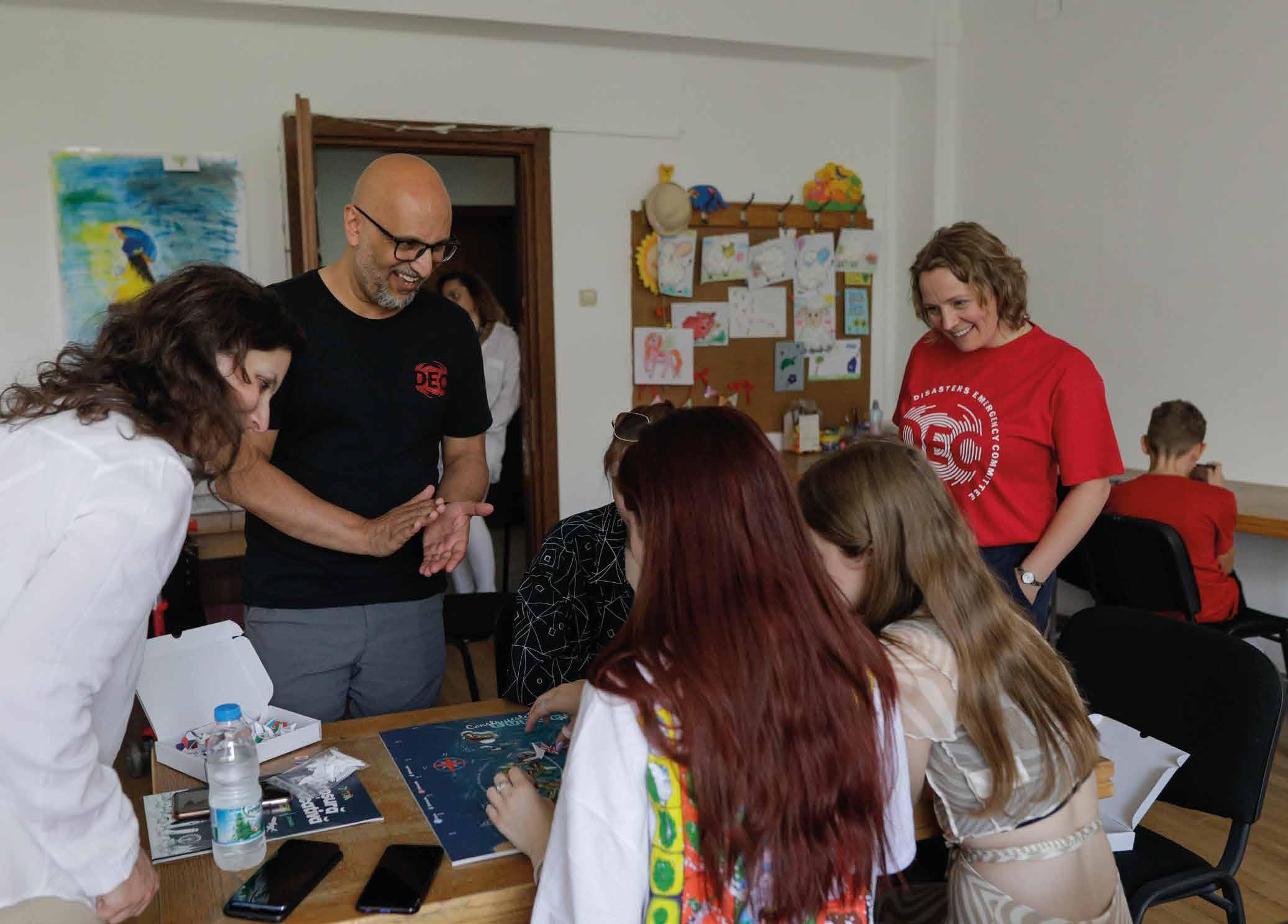
1 minute read
HOW WE HELPED: ROMANIA
Nearly 100,000 refugees from Ukraine have registered for temporary protection in Romania. Almost 80% of them are women and children, with the majority (over 90%) living in private accommodation with host communities, and the remainder in government-run accommodation centres. While the Romanian government has developed a range of responses to support refugees, many people require additional support including help with finding accommodation and work; assistance with enrolling children in school; access to healthcare and psychosocial support; and opportunities for refugees and host communities to meet and integrate.
Nine DEC member charities are responding in Romania, providing integrated emergency support to new arrivals at border crossings; protection, mental health and psychosocial support; multi-purpose cash assistance for immediate needs such as healthcare and winter clothes; shelter support, including private long-term accommodation and supporting refugee centres with utility bills and running costs; and a range of educational activities for refugee and host community children.
70,800 people received food assistance such as food baskets
3,000 people received hygiene kits containing toothbrush, toothpaste, soap, shampoo, washing soap/powder and toilet paper
1,300 people were reached with winterisation activities
1,000 people received multi-purpose cash assistance
600 people received non-food items and kits
HOW WE HELPED: INFORMATION, ADVICE AND WELLBEING SUPPORT
ROMANIA: EXPENDITURE BY SECTOR
1
DEC member charities continue to support partner organisations to run reception and information centres, including a multifunctional centre in the town of Timis in western Romania, where refugee families can meet and socialise. The centre provides social, psychological and legal assistance and educational activities for Ukrainian children. The DEC partner organisation has also set up a mobile team of specialists that assists refugees in transit, providing information on support services and consultations to assess people’s needs, as well as providing accompaniment and translation during medical consultations. In the border town of Siret in northern Romania, an ‘Info-Point’ aims to meet immediate needs for food, water and medical services, while providing emotional and psychological support and mental health counselling.
Supporting refugees to process the psychological impact of their experiences and situation has emerged as a key focus for DEC member charities in Romania. Staff from partner organisations and volunteers have been trained on child

37,200 people received information about prevention of human trafficking
10,700 people received legal assistance, information or advice
6 community groups, institutions and local organisations benefitting from multipurpose cash assistance










